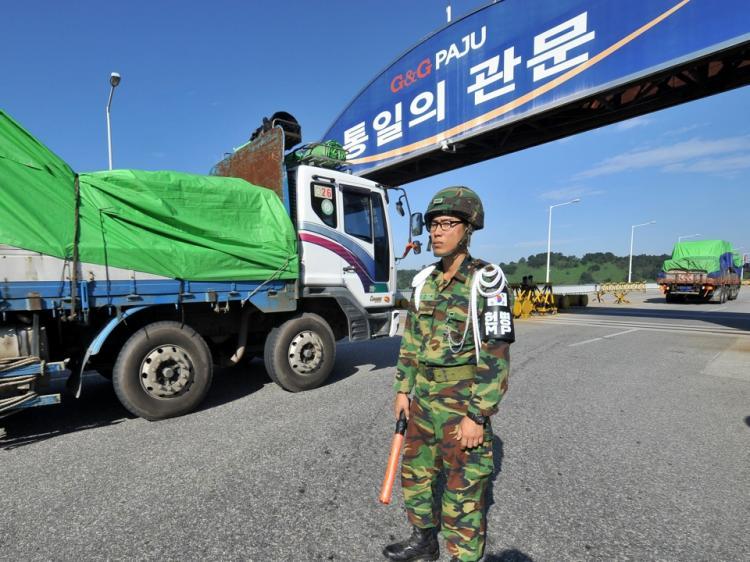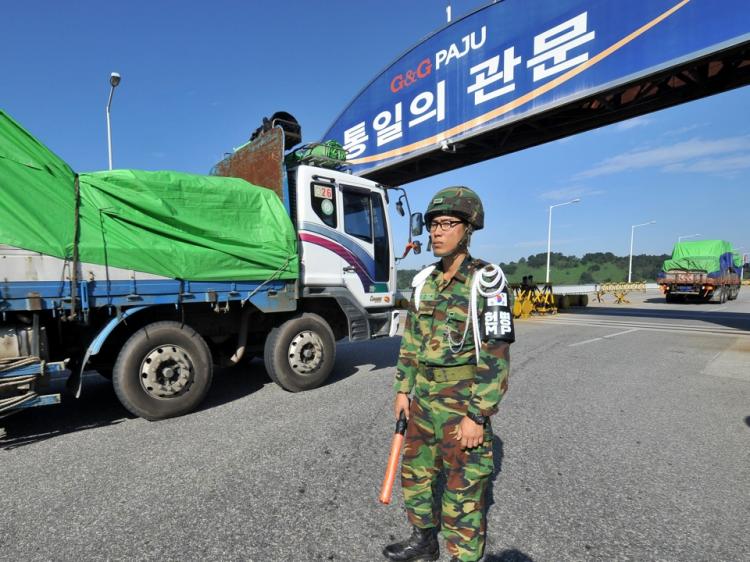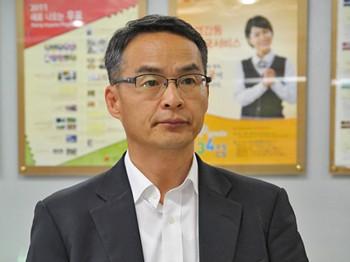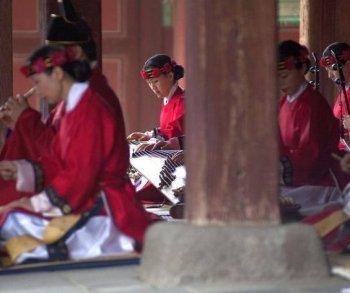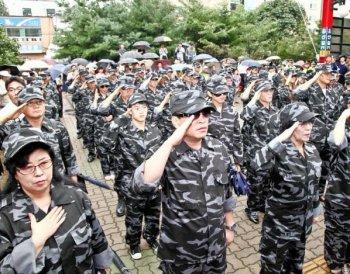S. Korea Shows No Signs of Resuming Food Aid to Starving North
Majority of South Koreans oppose unconditional food aid to North Korea.
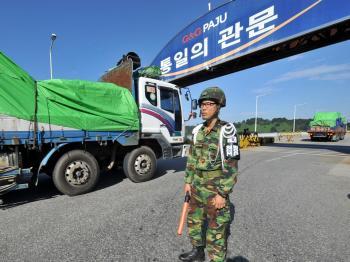
South Korean trucks carry 530 tons of food aid to North Korean flood victims on Sept. 16. The South Korean government has all but stopped sending food aid to the North insisting that the communist regime first take steps toward denuclearization before aid resumes. Critics of food aid say it serves to strengthen the regime, rather help those in need. JUNG YEON-JE/AFP/Getty Images
|Updated:
